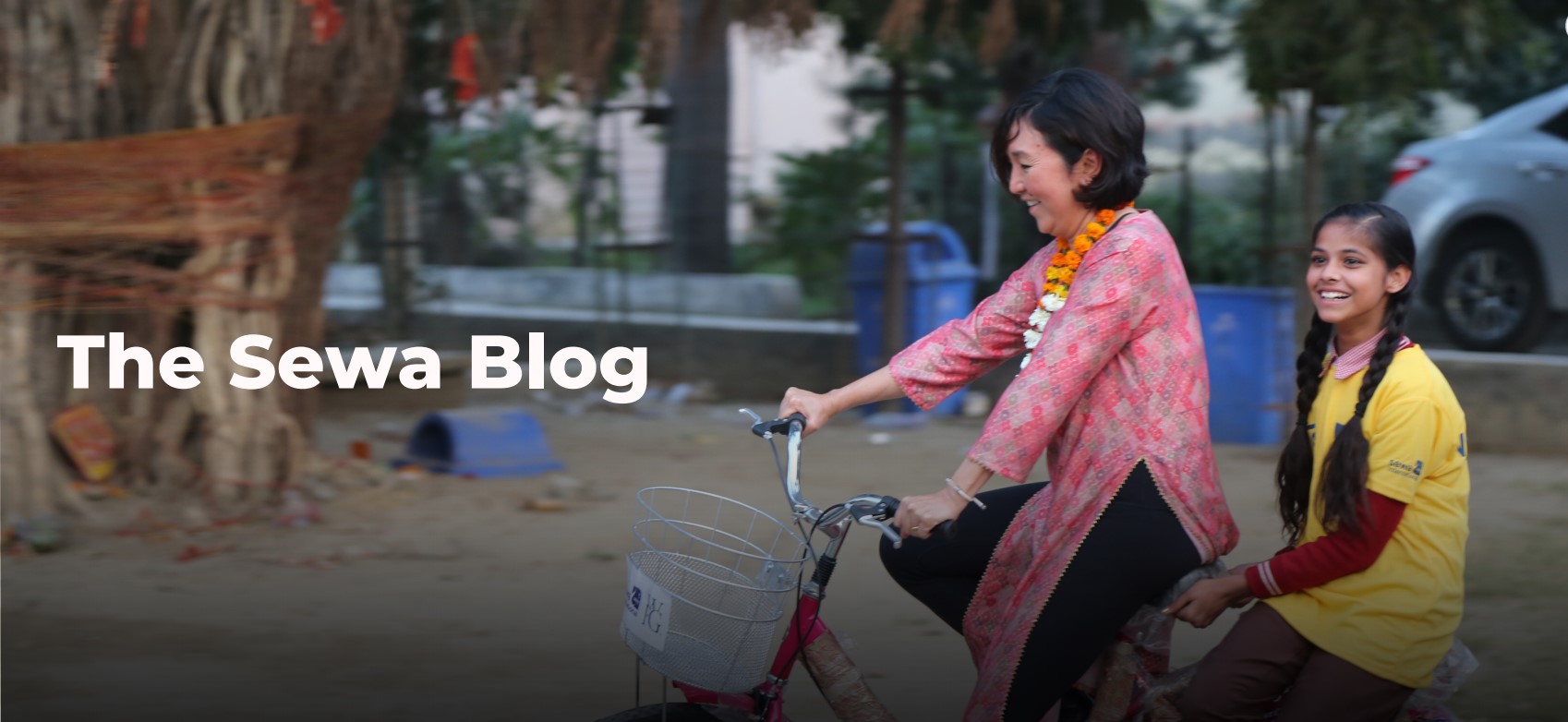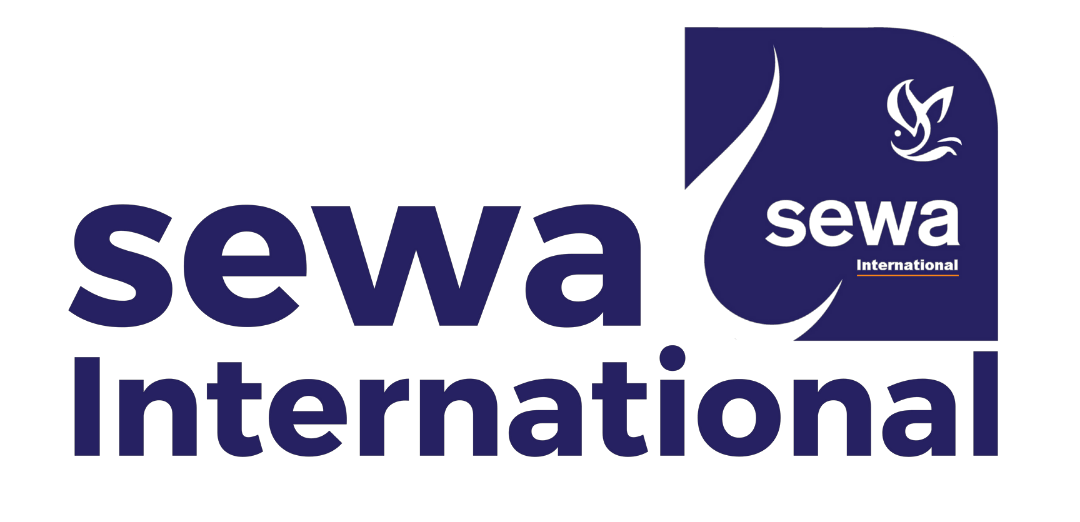 |
All Categories |
 Empower Her, Transform Generations: Adolescent Girls as Agents of Change Published on September 11, 2024 Empower adolescent girls with the LADLI initiative! Support their growth as leaders in health and education. |
 Collective Development: Over Self-Interest The Global Mantra Published on August 13, 2024 The secret to shaping nations’ destinies and human civilization lies in cultural heritage and philosophical traditions. As Prime Minister Narendra Modi noted, “It is in India’s culture to share its knowledge with the world” (Modi, 2021). |
 Choosing a Career in Social Impact: A Comprehensive Framework Published on June 15, 2024 India currently stands at a crossroad, facing the duality of development. While we are registering almost 3 unicorns per month in 2022, we also saw almost 7 farmers committing suicide every day in the last two years.New generation start-ups are promising to solve ‘key’ problems of the society like 10-minute grocery delivery and faster shopping experience, while other ‘key’ problems like climate change and child trafficking remain unsolved. |
 A Period of Change: Knowledge, Attitudes, and Practices of Menstrual Hygiene in India Published on May 31, 2024 Menstrual hygiene management (MHM) is crucial for the well-being of women and girls, and is intrinsically linked to broader systemic issues such as health, education, gender equality, and well-being. Menstruation signifies the transition of a girl into womanhood, marking the attainment of reproductive maturity (Tyler and Woodall, 1982). |
 10 Years of Mandatory CSR: From Obligation to Opportunity A decade has passed since the Companies Act, 2013 mandated corporate social responsibility (CSR) for companies based on their net worth, revenue, or profits, in April 2014. It's time to take stock of the journey thus far, examining the strides made and the hurdles encountered in the realm of corporate philanthropy. |
 Celebrating Women Leaders of Bharat On International Women’s Day Published on March 8, 2024 Our first inspiration comes from Phoolbasan Yadav Ji, an inspiring grassroots leader from Chhattisgarh who has nurtured 12,000+ self-help groups, drawing inspiration from Maa Bamleshwari, a representation of the divine power of Shakti. Phoolbasan Ji presents a unique model of empowerment-focused development, where a decentralized. |
.jpg) First month of New Year 2024: Sewa International making a difference, paving the path for a new journey in this New year Published on February 5, 2024 Kicking off the new year with zeal, Sewa International has embarked on a diverse array of projects, all unified with the purpose of ‘Serving the Humanity’. Dive into these stories with us. |
.jpg) I Visited Sewa International’s projects in Uttarakhand and this is what I have found Published on July 12, 2023 The notion of sewa has been the soul of Bharatbhumi since time immemorial. During our stay in Uttarakhand, we were fortunate to experience the subtleties of this notion of sewa tatva through the sewa karya being done by Sewa International Bharat. |
.jpg) Civil20 at G20: India's opportunity to expand the civilizational footprint Published on March 8, 2023 It’s been 3 months since India took over the mantle of the G20 presidency. With hoardings around G20 engulfing the public spaces across major cities and towns, this year encourages excitement as a major diplomatic milestone in India’s history. |
 Empowering Education with SEL Programs Published on April 2, 2024 Discover how our SEL programs nurture emotional intelligence, resilience, and prosocial behavior, revolutionizing education with empathy and self-awareness. Read More |
 Empower Her, Transform Generations: Adolescent Girls as Agents of Change Adolescents, defined as individuals between the ages of 10 and 19, represent a vital demographic group in society (Adolescent Girls and Young Women, n.d.).  10 Years of Mandatory CSR: From Obligation to Opportunity A decade has passed since the Companies Act, 2013 mandated corporate social responsibility (CSR) for companies based on their net worth, revenue, or profits, in April 2014. It's time to take stock of the journey thus far, examining the strides made and the hurdles encountered in the realm of corporate philanthropy.  Celebrating Women Leaders of Bharat On International Women’s Day Published on March 8, 2024 Our first inspiration comes from Phoolbasan Yadav Ji, an inspiring grassroots leader from Chhattisgarh who has nurtured 12,000+ self-help groups, drawing inspiration from Maa Bamleshwari, a representation of the divine power of Shakti. Phoolbasan Ji presents a unique model of empowerment-focused development, where a decentralized. .jpg) First month of New Year 2024: Sewa International making a difference, paving the path for a new journey in this New year Published on February 5, 2024 Kicking off the new year with zeal, Sewa International has embarked on a diverse array of projects, all unified with the purpose of ‘Serving the Humanity’. Dive into these stories with us. .jpg) I Visited Sewa International’s projects in Uttarakhand and this is what I have found Published on July 12, 2023 The notion of sewa has been the soul of Bharatbhumi since time immemorial. During our stay in Uttarakhand, we were fortunate to experience the subtleties of this notion of sewa tatva through the sewa karya being done by Sewa International Bharat. .jpg) Civil20 at G20: India's opportunity to expand the civilizational footprint Published on March 8, 2023 It’s been 3 months since India took over the mantle of the G20 presidency. With hoardings around G20 engulfing the public spaces across major cities and towns, this year encourages excitement as a major diplomatic milestone in India’s history.  Empowering Education with SEL Programs Published on April 02, 2024 Discover how our SEL programs nurture emotional intelligence, resilience, and prosocial behavior, revolutionizing education with empathy and self-awareness. Read More |
